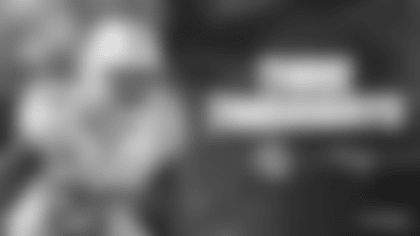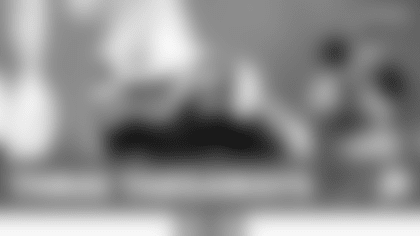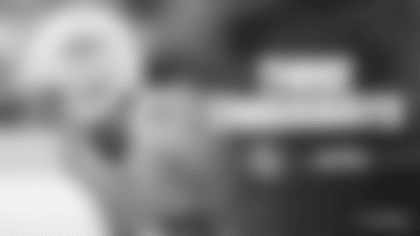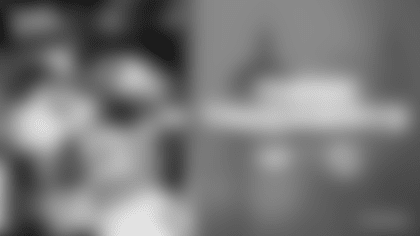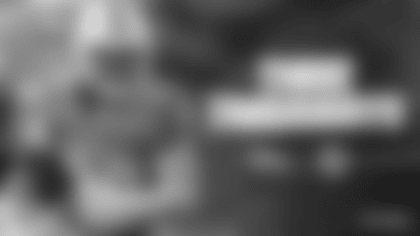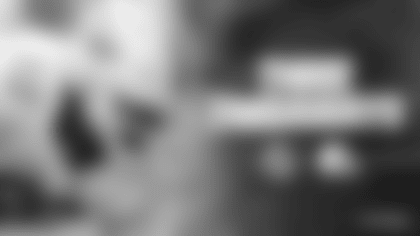In each defeat this season, the Dolphins had a fourth quarter possession on the plus-side of the field and a chance to take the lead. Sunday, against the 49ers, marked the first time this season that starting quarterback Tua Tagovailoa faced that very scenario and didn't come out the other side victorious. After winning under similar circumstances versus Baltimore, Buffalo and Detroit, the Dolphins were unable to make that happen Sunday as Miami had the ball at the Niners' 36-yard-line trailing by six points with six minutes to play.
For more coverage on the Dolphins' 8-4 start and push to the postseason, download the Drive Time Podcast with Travis Wingfield is the Miami Dolphins Podcast Network's home for in-depth analysis and coverage of your team.
Here are the three takeaways from the Dolphins' 33-17 loss to the 49ers.
1. Critical errors against a good football team
The old adage extends to all sports – give a good team extra opportunities and victory becomes elusive. After striking gold on the opening play with a 75-yard rip from Tagovailoa to Trent Sherfield – the fastest touchdown to begin a game in franchise history at 10 seconds – the Dolphins went three-and-out on three of the next four possessions. The usual sharpness we've grown accustomed to this season looked a little off on those throws to the intermediate-middle portion of the field
"It sucks. It sucks that we didn't come out and say what we wanted to do collectively as a team," Tagovailoa said. "Obviously that starts with me offensively. Turnovers, third downs, communication errors; in that retrospect it's hard to win a game when you're not on your p's and q's and you're not dialed in."
Those misses kept the game close early, while giveaways and penalties doomed the outcome late. Defensive pass interference on third down extended the Niners' first touchdown march and a holding call erased a 20-yard run by Raheem Mostert. That foul put Miami in first-and-25 from the plus-43-yard-line as opposed to a first down at the plus-13-yard-line. The very next play was a 49ers interception.
It was the first of three 49ers picks as the Dolphins lost the turnover battle four to one. The eight Dolphins penalties were double the amount called on the 49ers, and time of possession was a 2:1 split in favor of the home team.
The final nail in the coffin, for all intents and purposes, occurred on the fourth-and-2 incomplete pass to Mike Gesicki. Originally ruled a reception, the replay booth overturned the call to a turnover-on-downs, and that was the last time Miami would possess the ball in a one-score game.
2. Quick-strike offense
All year, Miami has methodically chewed up chunks of yardage. Since the aerial display we saw in Baltimore back in September, Miami's longest offensive touchdown was the 29-yard dime from Tagovailoa to Jaylen Waddle in Detroit. Sunday in Santa Clara, Miami found paydirt from 75 and 45 yards out by going to Sherfield and Tyreek Hill.
Hill, who logged nine grabs for 146 yards, leads the NFL in both catches (96) and receiving yardage (1,379). The yardage leaves Hill just 10 yards shy of Mark Clayton's 1,389 yards in 1984, the Miami Dolphins franchise record for single-season receiving yards.
Tagovailoa, who now has five touchdown throws of 40-plus yards this season and a league-leading 75 passes of at least 15 yards, explained the process of the two long scores.
"We were in 20-personnel, I think they were in base. They had no adjustments to the bunch. They just had their backers stacked inside and ended up bringing a guy off the edge to that side so there was a little pocket, a little area that was voided. So we gave Trent (Sherfield) that ball and he turned that into a touchdown," Tagovailoa said.
"Then the other play, we went fast on the ball and we saw quarters. They gave us the right coverage for the right play and we took a shot," Tagovailoa said of the Hill touchdown.
3. Study up the middle
Miami had a chance to steal a win late, thanks in large part to some dominant individual performances. Rookie quarterback Brock Purdy was decisive and distributed the football to the many play makers of the 49ers, but he still averaged just 5.7 yards per pass. Safety Jevon Holland was all over the field limiting the pass game, rushing the quarterback and defending the run. Xavien Howard secured his first interception of the year as San Francisco's yardage-leader among the wide receivers was Deebo Samuel with just 58 receiving yards.
Miami forced the 49ers into 18 third down attempts (excluding victory formation at the end of the game). They accomplished that thanks in large part to holding San Francisco to just 3.55 yards per rush (3.13 prior to McCaffery's game-clinching 30-yard scamper).
Stopping the run is a full-team effort, but Miami's two men in the middle were unblockable for the majority of the game. Christian Wilkins made 12 total tackles and Zach Sieler added seven of his own. Both players were quick off the ball, won with a variety of pass rush moves and finished plays, including arguably the most impressive display of effort all season.
Jauan Jennings' fumble drifted over the sideline and out of harm's way, but that hardly diminishes the play Wilkins made to jar the ball free. On a 19-yard catch-and-run Wilkins, who rushed the quarterback on the play, turned back the other direction and pursued the ball from the back. When Jennings changed directions, Wilkins caught up and punched the ball loose 20 yards away from where his pass rush occurred.
For more analysis, takeaways and breakdowns, check out the Drive Time Podcast with Travis Wingfield, available on Apple, Spotify or wherever you get your podcasts.



